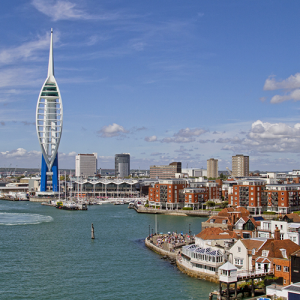By Richard Johnstone | 4 April 2013
MPs have urged ministers to look again at the costs of creating a single-tier state pension, warning that bringing forward the change could have ‘significant implications’ for public sector employers.

The work and pensions select committee was examining provisions in the draft Pensions Bill to merge the two existing pensions into one, paying £144 a week. This will replace the current fixed basic state pension of £107.45 and the state second pension, which is based on earnings and National Insurance contributions paid.
Many employees and employers with workplace pensions, including swathes of the public sector, currently opt out of paying the additional National Insurance contributions into the second state pension. This right will be removed when the new state scheme is introduced.
Public sector union Unison has said that as a result workers could be ‘clobbered’ with an NI increase of as much as 3.4%.
The changeswere originally intended to be in place by April 2017 but Chancellor George Osborne announced in last month’s Budget that they would be brought forward by a year. He said public sector employers would need to absorb the additional costs of the National Insurance contributions, totalling around £3.3bn.
In their report, Single-tier state pension, the MPs welcome the simpler payments system. But they warn that the change in timetable could have ‘significant implications’ for employers, including those in the public sector, who now have one year less to prepare for the ending of contracting out.
The committee recommended that ministers work with employers to ensure the transition is as smooth as possible, and that existing pension schemes do not suffer as a result.
It was therefore ‘imperative’ that the government carried out a further impact assessment of the single-tier pension proposals when the final Bill is introduced in May, the report added. This should provide details of the costs of bringing forward the plan, and set out the impact the new timetable will have on the pensions industry and employers.
An analysis of the spending implications of setting the single-tier pension rate at a range of higher levels should also be provided. Parliament should be given an estimate of the level the pension could be set at if all additional NI revenue was used for this purpose, the committee said.
Chair Dame Anne Begg said the committee supported the principle of the single-tier pension.
She added: ‘In the short to medium term it will mean more state pension for many people, particularly the self-employed, and women and carers who have been low earners or had gaps in employment. It will be a much simpler system to understand and people will be able to see more clearly how much they can expect from the state.’
However, the transition period will be long and complex, and the government should provide a better explanation of the likely impacts, she added.
‘Individuals will be affected in different ways depending on a number of factors, including their age, and their previous pension and National Insurance contributions. There are already misconceptions about who stands to gain and who might lose. People closest to retirement understandably have the most immediate concerns.’
Responding to the report, a Department for Work & Pensions spokesman said: ‘We appreciate the committee has put a lot of effort into looking at our plans for the new simpler and fairer state pension, which will particularly benefit women and the self-employed.
‘We are pleased this cross-party committee is broadly supportive of our approach. We will study the recommendations carefully before responding in due course.’




















